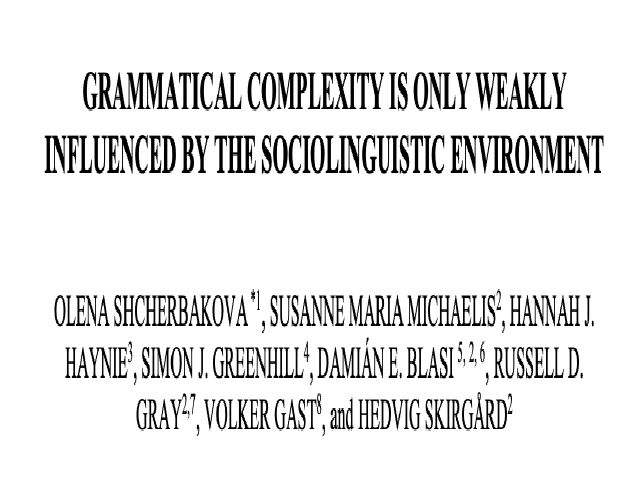Grammatical complexity is only weakly influenced by the sociolinguistic environment

Authors:
Citation:
Details:
Published: 12 December, 2022.
Download:
Abstract:
Recent studies claim that the social environment influences the evolution of language structures. In particular, grammatical complexity has been proposed to be lower in communities with looser social networks, higher numbers of L1 speakers, and higher proportions of L2 speakers (among others, Kusters 2003, Trudgill 2011, Lupyan & Dale 2010, Sinnemäki & Di Garbo 2018). The explanation for these relationships relies on the assumption that larger communities are exposed to more contact than smaller ones. Specifically, due to substantial proportions of L2 speakers in large communities, the more complex features are not always transmitted to further generations, and hence languages become simpler over time. Here we test these claims on a global scale using two metrics of grammatical complexity while controlling for phylogenetic and spatial non-independence.